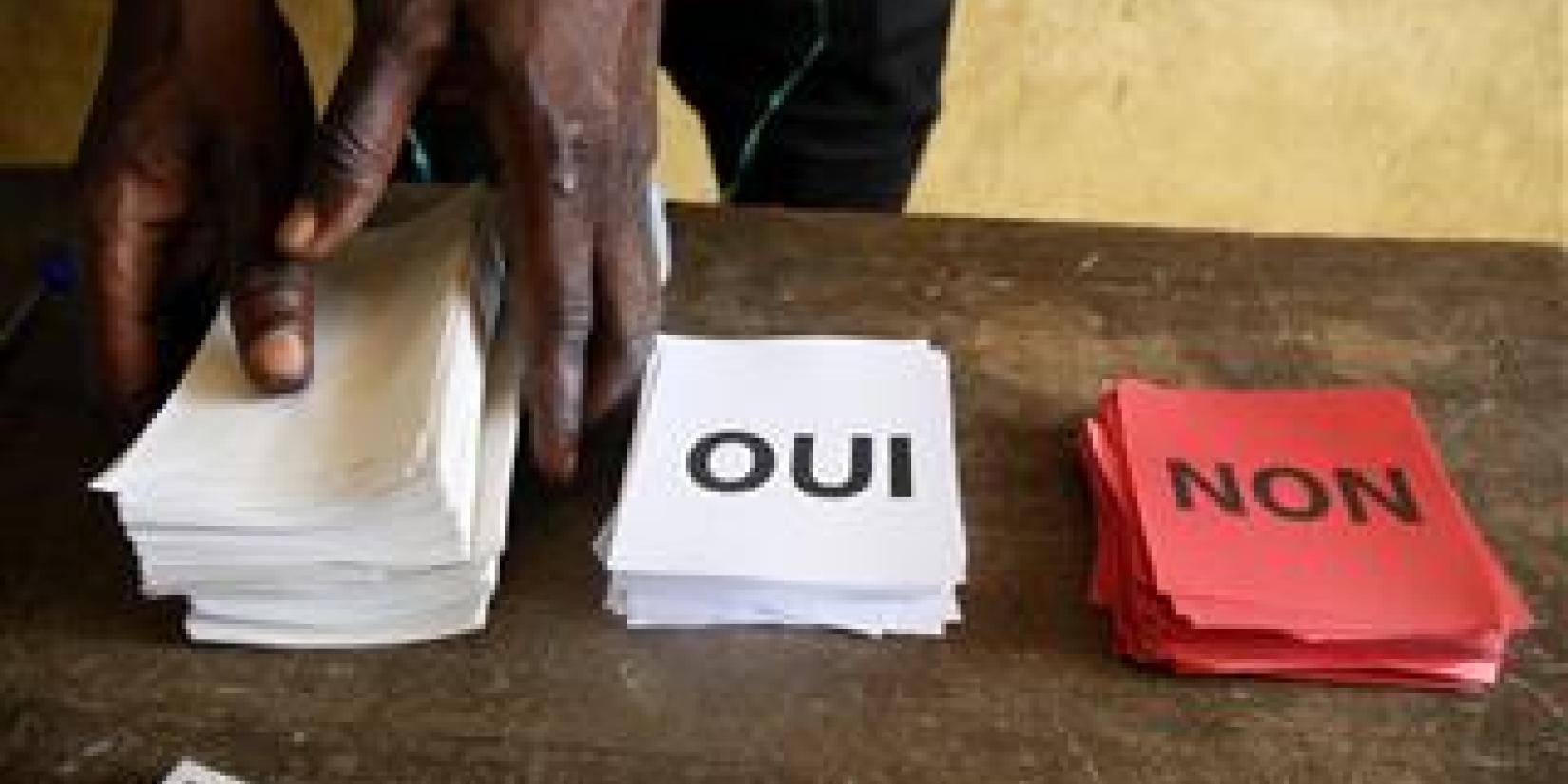The work of the UN Regional Office for West Africa and the Sahel (UNOWAS) was the focus of a UN Security Council meeting today. UNOWAS is active in 16 countries where millions of people face multiple and complex challenges that jeopardize security in the region. At the end of January 2023, the Security Council extended the mandate of UNOWAS for another three years, under the leadership of Switzerland and Ghana. Despite some positive trends in the strengthening of democratic governance in some countries, the security situation in much of the region remains fragile and the need for humanitarian assistance is increasing. At today's Council meeting, Switzerland emphasized that prevention is crucial to avoid new conflicts and the escalation of existing ones.
In the Council, Switzerland expressed its satisfaction with the improvements in the area of democratic governance. Several elections in the region were largely peaceful last year. Among other things, Switzerland supported the National Peace Committee in Nigeria to reduce violence before and during the elections.
Switzerland also welcomed the fact that UNOWAS will support Ghana, Mauritania, Senegal and Togo in organizing elections. In addition, Switzerland emphasized the need to continue promoting and implementing legislation that strengthens the role of women in political processes, thereby contributing to the development and consolidation of political institutions, electoral processes and democratic governance throughout the region.
The security situation for the civilian population in some regions of the Sahel remains a concern due to attacks by armed groups. In New York, Switzerland stated that developments, in particular after the withdrawal of the UN peacekeeping mission MINUSMA from Mali at the end of 2023, must be closely monitored. In this context, it emphasized the need to strengthen the work of UN Member States at the bilateral and multilateral level to mitigate the risk of a serious regional crisis. This should be done, in particular in close cooperation with the African Union and subregional organizations.
Strengthening humanitarian action to prevent and mitigate major humanitarian crises caused by conflict, instability, internal displacement and the consequences of climate change is another important factor for the protection of the populations. Some 26 million people in the Sahel region are currently in need of life-saving humanitarian aid. Against this backdrop, Switzerland emphasized that addressing climate risks into account is key to effective conflict prevention in West Africa and the Sahel. The effects of climate change, such as floods and droughts, have far-reaching consequences for security in the region. In the Council, Switzerland emphasized that the continuous analysis of climate risks and a better understanding of the linkages between climate, peace and security remain important in order to support the affected countries in adapting to the effects of climate change. Switzerland also read out a statement on behalf of several countries to draw attention to the negative impact of climate change on peace and security.
Joint Statement on Climate Security, UN Security Council, 11.01.2024




